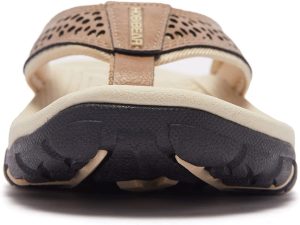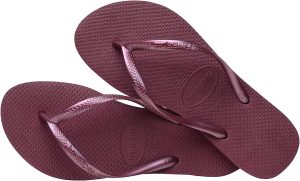Walking in comfort is essential, and orthopedic sandals are designed to provide support and alleviate discomfort for those who require extra care for their feet. Here are some tips for walking in comfort with orthopedic sandals:
- Choose the Right Fit: Proper fit is crucial for comfort. Ensure that the sandals are the correct size and provide enough room for your toes to move comfortably without being too tight.
- Arch Support: Look for orthopedic sandals with built-in arch support. This feature helps distribute your body weight evenly and reduces strain on your feet, especially during long walks.
- Cushioning: Opt for sandals with cushioned footbeds or midsoles. These provide shock absorption and reduce impact on your joints while walking.
- Adjustable Straps: Sandals with adjustable straps allow you to customize the fit to your foot shape. This helps prevent friction and discomfort, particularly if your feet tend to swell during the day.
- Stability and Traction: Choose sandals with a stable sole and good traction to prevent slips and falls. This is especially important if you’ll be walking on various surfaces.
- Toe Box Space: Ensure that the toe box is spacious enough to accommodate your toes comfortably without causing friction or pressure points.
- Breathable Materials: Opt for orthopedic sandals made from breathable materials to keep your feet cool and prevent excessive sweating.
- Gradual Break-In: If your new orthopedic sandals feel slightly different from your regular footwear, allow some time for them to mold to your feet and provide optimal support. Start by wearing them for short periods and gradually increase the duration.
- Listen to Your Body: Pay attention to any discomfort or pain. Orthopedic sandals should provide relief, so if you’re experiencing discomfort, adjust the fit or consult a healthcare professional.
- Wear Appropriate Socks: Choose moisture-wicking and breathable socks that complement your orthopedic sandals. Proper socks can enhance comfort and reduce the risk of friction.
- Consult a Professional: If you have specific foot conditions or concerns, consider consulting a podiatrist or orthopedic specialist. They can provide guidance on the best orthopedic sandals for your needs.
Remember that every individual’s needs are unique. What works best for one person may not be suitable for another. It’s important to prioritize your comfort and well-being when choosing orthopedic sandals, especially if you plan to do a lot of walking or other activities that put stress on your feet.












